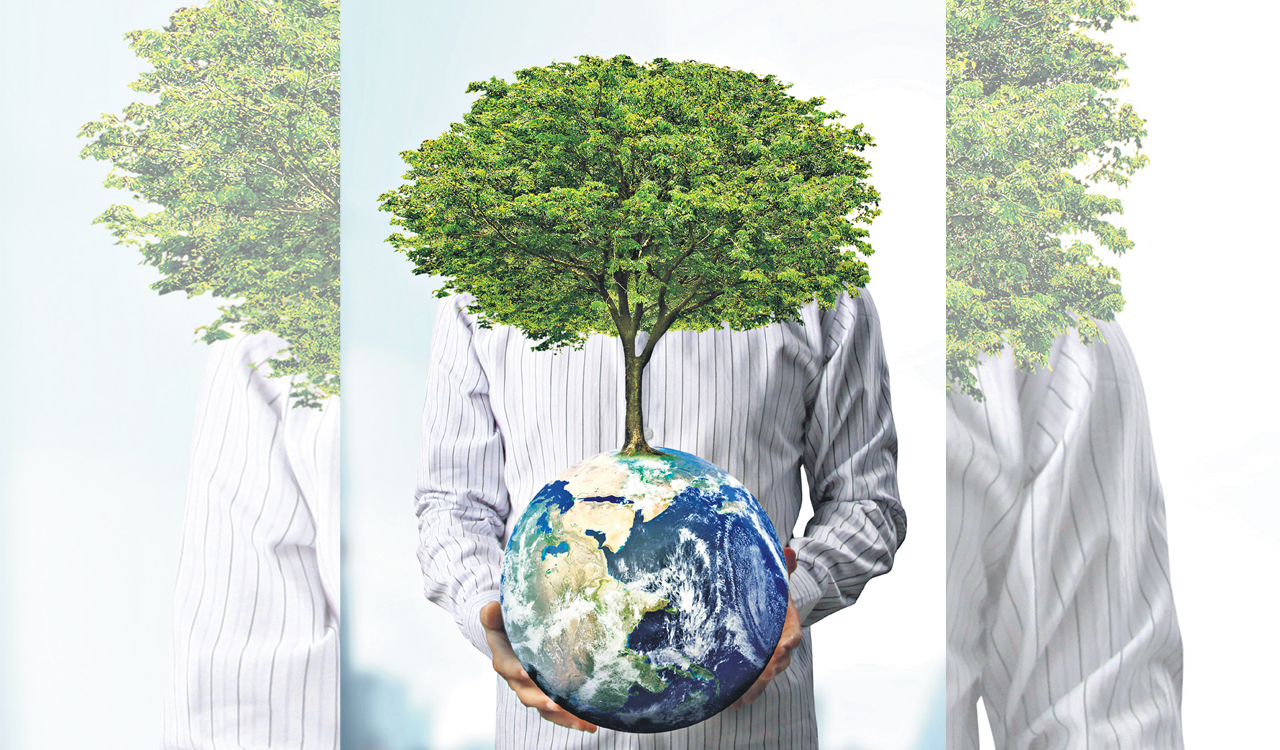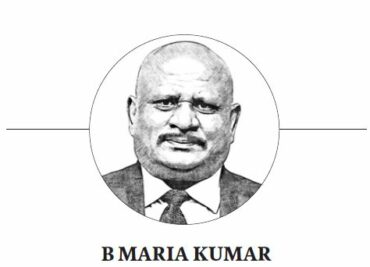Opinion: Condemned to be responsible
Humans by nature’s design are responsible for their actions to be free and secure. This reality has remained largely unheeded

By B Maria Kumar
In its June 2024 issue, the Journal of the American Medical Association (JAMA) Network Open published a research report by Boya Zhang and colleagues highlighting how long-term exposure to traffic pollution leads to a loss of independence, particularly among older adults. The findings are critically important given the worsening global scenario where many people have already been suffering from the deprivation of their freedoms, whether in livelihood choices, equality of conditions and opportunities, liberties of speech and expression and so on which are essential for true human existence.
Fragile Humanity
The journal’s review conclusion emphasises that 50-plus-year-old individuals experience declining levels of personal autonomy due to the debilitating implications of escalating atmospheric contamination, particularly from greenhouse gases. This alarming trend adds to many other human-made life-threatening circumstances. Ironically, some intellectuals in science, technology, economics and public life claim unreflectively that their innovations, inventions or policies promote freedom and progress. In reality, these outcomes in several instances are turning out to be making humanity more dependent, unsafe and fragile.
The JAMA investigative team, in the context of their cohort study, defined loss of independence as the requirement of care for at least one activity pivotal for daily living in terms of physical and psychological maintenance like for example, dressing oneself, being able to get to toilet and engaging in mindful interactions. Thus, the loss of independence encompasses the absence of freedom, autonomy, capacity to choose, self-sustenance and more. In other words, it signifies a profound negative impact on an individual’s ability to function unrestrictedly and manage a quality of life that is not reliant on constant assistance.
Liberated Life
However, humanity has faced across the history numerous impediments in its pursuit of a liberated life. Gone are the days when many regions struggled for independence to free themselves from the clutches of colonial rulers. Beyond geopolitical realms of freedom, there are other fundamental areas involving social, economic, spiritual, attitudinal and cultural aspects that are indispensable for the meaningful human experience. These domains are critical as they shape the very fabric of our daily lives and influence our capabilities to live autonomously and with dignity.
The world is familiar with civil liberties movements, international relations, law enforcement strategies, ecosystem safeguarding endeavours and so forth. The crises stemming from these issues often leave people feeling helpless regarding their mobility, pursuits and aspirations. As hope dwindles and the competence to act liberally diminishes, people discern they are not truly free. This realisation is stark and sobering, highlighting the complex interplay between external circumstances and internal states of being. Throughout the past, humans have felt insecure and uncertain, first at the hands of the inhospitable wilderness of the prehistoric environment and the threat of wild animals. Later, when political bodies emerged to ward off hostile opponents, personal independence was once again compromised.
Apart from external factors, intrinsic barriers such as superstitions, blind submissiveness hinder humans’ ability to exercise choices voluntarily
Enlightened societies that appeared a few centuries ago also restricted citizens’ behaviours in the name of civil stability. This social order, while intended to create harmony, often led to new forms of dependency and control. Modern technology has brought deadly weapons — chemical, biological and nuclear — which instilled eternal fear in the minds of humanity, robbing the spirit of their emotional freedom. The ongoing wars in Eastern Europe, the Middle East and some African territories are just a few examples of this enduring hardship.
Furthermore, many sovereign nations are not actually free to act on their own due to economic contingencies, political alliances or extraneous pressures. These complexities underscore the persistent and pervasive threats to independence and autonomy which not only the nations as collectives but also individuals as conscientious beings face consistently. Apart from external factors that prevent people from enjoying their freedom, there are also intrinsic barriers such as superstitions, obliviousness, educational deficiencies, lack of scientific temper, blind submissiveness and imaginary fears which hinder their ability to exercise choices and options voluntarily.
What is life for?
Since human life is instinctually self-preserving, the predicament we often encounter is: what is life for? In this way, the journey of life seems aimless unless a specific purpose is created to make it fulfilling and secure it as long as possible. Hence, we can ultimately generalise that individuals must explore and exist in life, for which the freedom to discover and experience the nuances of the world becomes crucial. Sadly, this very endeavour unwittingly and typically ends in tight spots that tend to curtail freedom by and large, as the efforts of countless individuals simultaneously clash over for the same reasons, leading to frictions and risks to all lives. This is the quandary that our primaeval ancestors faced, and it is the same fate we experience even today.
As JAMA Network Open’s fresh revelations present new menace due to pollution harming the quality of our well-being and endangering our private independence, the most troubling question that torments our cognitive state is how to redeem ourselves from the notoriety of such existential ambiguities. Sartre’s dictum that man is condemned to be free, though seemingly highly appropriate as a much-respected idea, needs to be equipped with a safety catch. Without this, the security and safety of a free humanity cannot be ensured. This is where the most vital law of nature, covering all living creatures including humans, ought to operate sustainably by infusing quintessential responsibility into their spirit.
Therefore, humans by nature’s design, are condemned to be responsible for their decisions and actions in order to be safe, free and secure. This reality has thus far remained largely unheeded, and it is time for humanity to wake up and implement it in letter and spirit henceforth.

(The author is IPS (Retd) and a winner of National Rajbhasha Gaurav Award for the year 2022-23)
Related News
-
BC, SC and ST organisations stage protest at DGP office over Kummera village incident
2 hours ago -
‘Irresponsible’: Ponnam hits back at Bandi Sanjay’s comments
2 hours ago -
Poorer sections under stress in Congress rule: MLC Madhusudhan
2 hours ago -
Sports briefs: Sanjana, Hasini win titles at All India Women’s Tennis tournament
2 hours ago -
Konda Surekha suspends four temple staffers in Balkampet
3 hours ago -
Sreenidi Deccan FC take on Diamond Harbour in their IFL opener on Saturday
3 hours ago -
Hemanth Reddy fashions Galaxy Cricket Club trophy win
3 hours ago -
Hockey India’s commitment to environmental sustainability
3 hours ago




